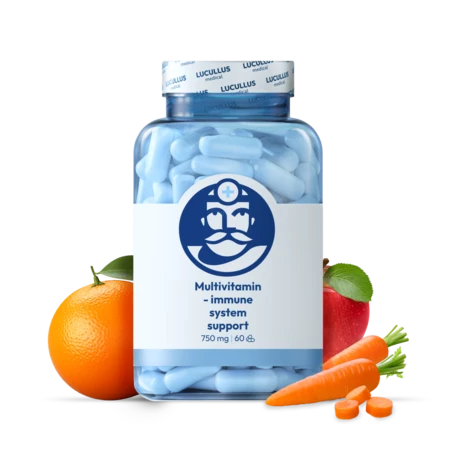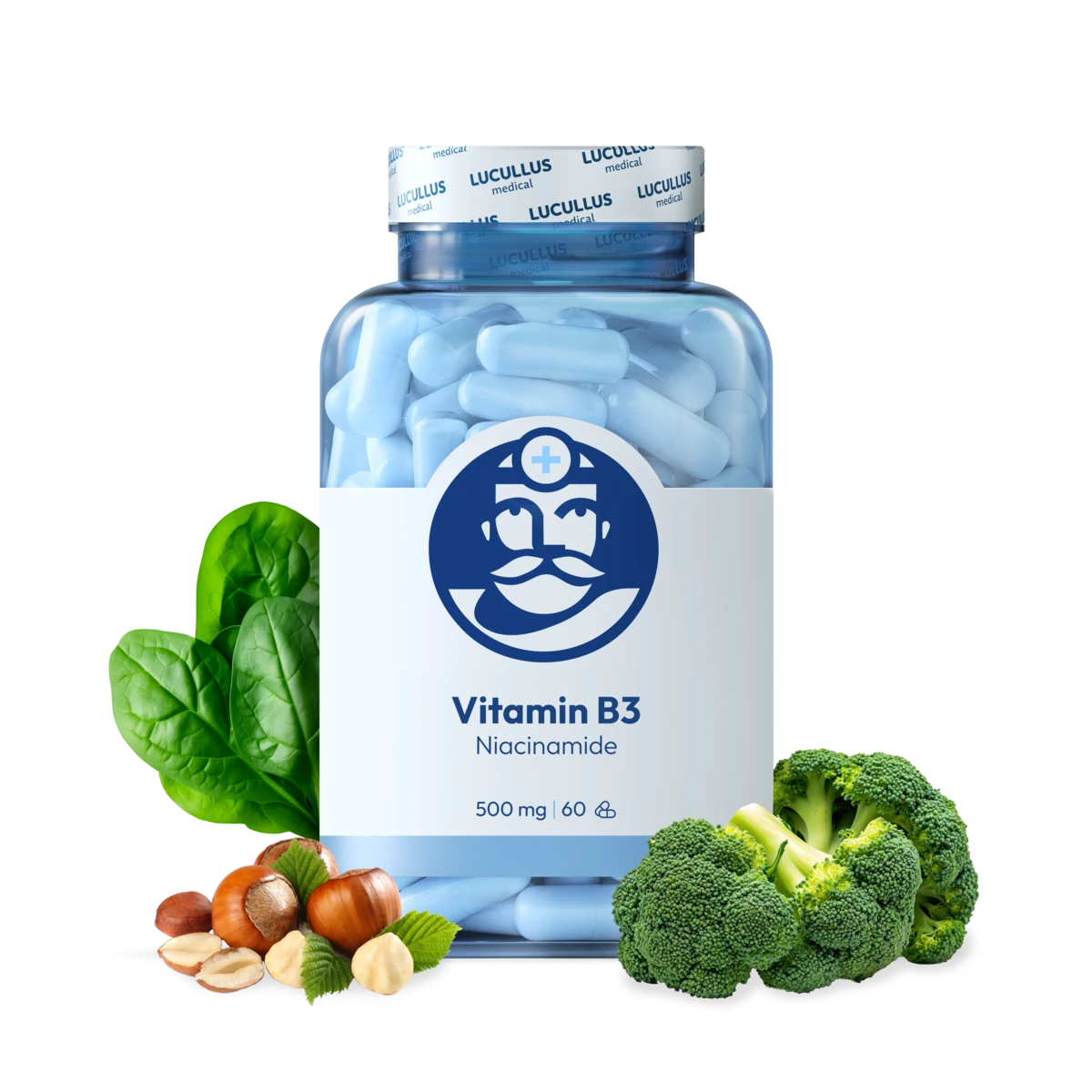

Vitamin B3 Niacinamide
Nutritional value
| Active ingredient | In daily dose | % Ref |
|---|---|---|
| Vitamin B3 (niacinamide) | 500 mg | 3125.00% |
Ingredients: Vitamin B3 (niacinamide), capsule made from gelatin.
Description
Product Overview:Discover the essence of vitality with Vitamin B3 - Niacinamide 500 mg, a carefully crafted dietary supplement that draws from the scientifically backed benefits of niacinamide, also known as vitamin B3. This essential vitamin, recognized for its multifaceted health benefits, is now available to support your daily health with the precision of scientific research and the gentle touch of natural wisdom.
Key Benefits:
1. Energy Metabolism Support: Vitamin B3 plays a key role in converting food into energy, helping to maintain optimal energy levels throughout the day.
2. Skin Health: Niacinamide is known for its beneficial effects on the skin, helping to improve its appearance, reduce redness, and support an even skin tone.
3. Nervous System Support: This vitamin is important for the proper functioning of the nervous system, contributing to the reduction of fatigue and exhaustion.
4. Antioxidant Properties: Niacinamide helps protect cells from oxidative stress, supporting healthier aging and overall well-being.
Scientific Precision Meets Natural Wisdom:
Each dose of *Vitamin B3 - Niacinamide 500 mg* embodies the harmonious blend of scientific research and natural wisdom. Each capsule delivers an effective 500 mg of niacinamide, ensuring optimal absorption and efficacy for comprehensive health support.
Directions for Use:
For best results, adults are recommended to take one capsule daily, preferably with a meal. This practice enhances the digestive process and ensures optimal absorption of the active compounds of this essential vitamin.
Commitment to Quality:
In the production of *Vitamin B3 - Niacinamide 500 mg*, exceptional attention is given to every step of the production process. Our supplement is manufactured in state-of-the-art facilities and undergoes rigorous quality controls to ensure purity, efficacy, and safety. Our commitment to excellence ensures that you receive a product that is effective and trustworthy, reflecting the purity and healing power of nature.
Empowering Your Health Journey:
At the heart of *Vitamin B3 - Niacinamide 500 mg* lies the promise of health. This supplement is more than just a product — it is a testament to the enriching synergy between traditional vitamin knowledge and modern scientific advancements. Let niacinamide guide you on a journey to enhanced vitality, healthy skin, and overall well-being.
Boost your health with Vitamin B3 - Niacinamide 500 mg.
Reviews
Ohodnoťte produkt








